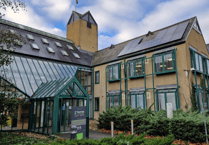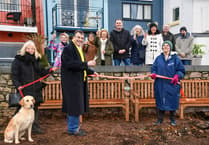AMBULANCE bosses in the south west are appealing to residents and visitors to take simple, preventative steps to stay safe over the summer holidays.
The school summer holiday period is traditionally one of the busiest times of the year for South West Ambulance Service service, particularly when the weather is warm.
With the region expected to welcome millions of tourists over the summer holidays, demand for emergency medical care increases significantly.
To ensure crews are available for the most serious incidents, SWASFT is encouraging the public to plan ahead and follow 10 key steps for a safe and healthy school summer break.
Know how to describe your exact location in a remote or rural area by using What3Words – a free app which converts your location into a unique three word address - so the emergency services can find you.
Spend 15 minutes to learn how to do CPR by vivisiting the SWASFT Saving Lives Together Website .
Learn where the nearest defibrillator is to your home or holiday address by visiting the Saving Lives Together Website
Make use of community pharmacies, which can advise on minor illnesses and provide medications.
Make sure you bring your medication with you when you visit the South West. If you do run out, please contact get your GP at home, who can arrange for a prescription to be sent to a local pharmacy.
Check tide times before heading to the beach, to ensure you have enough time to get back before the tide comes in. If you get into trouble, call 999 and ask for the coastguard.
Stay out of the direct sun in hot weather, especially between the hours of 11am and 3pm as UV rays are at their strongest during these hours.
Stay hydrated in the hot weather by drinking plenty of water and taking breaks in the shade.
Be considerate when you park, especially if you are going to the beach or parking on country lanes. Please make sure you are leaving enough room for emergency service vehicles to pass through.
Make sure you use the right service when you’re injured or unwell – 999 is for life-threatening emergencies only, for urgent, non-life-threatening care, please visit NHS 111 Online
Nick Reynolds, Head of Ambulance Operations (South Area) at South Western Ambulance Service NHS Foundation Trust, said: ‘The school summer holidays are always an incredibly busy time for our teams, and we want to make sure we're there for everyone who needs us in a medical emergency.
'To do that, we need your support. Please follow our steps and take simple, preventative steps to stay safe and well. Remember, 999 should only be used for life-threatening emergencies—such as when someone is unconscious, not breathing, or bleeding heavily.
'I want to thank our staff and NHS colleagues who continue to work tirelessly through this challenging period to support our communities.
‘If you do need their help, please treat them with kindness and respect—they are doing their best under immense daily pressure.
‘By planning ahead, choosing the right service, and acting responsibly, you can help us reach those most in need.'
SWASFT provides emergency and urgent care for over 5.5 million people across the region and supports an estimated 23 million visitors annually, many of whom arrive during the summer months.
The public is also reminded not to call 999 for ambulance arrival times.
Only call back if the patient’s condition worsens or an ambulance is no longer needed. This helps keep emergency lines free for others in critical need.
For more information and resources, visit: www.swast.nhs.uk





Comments
This article has no comments yet. Be the first to leave a comment.